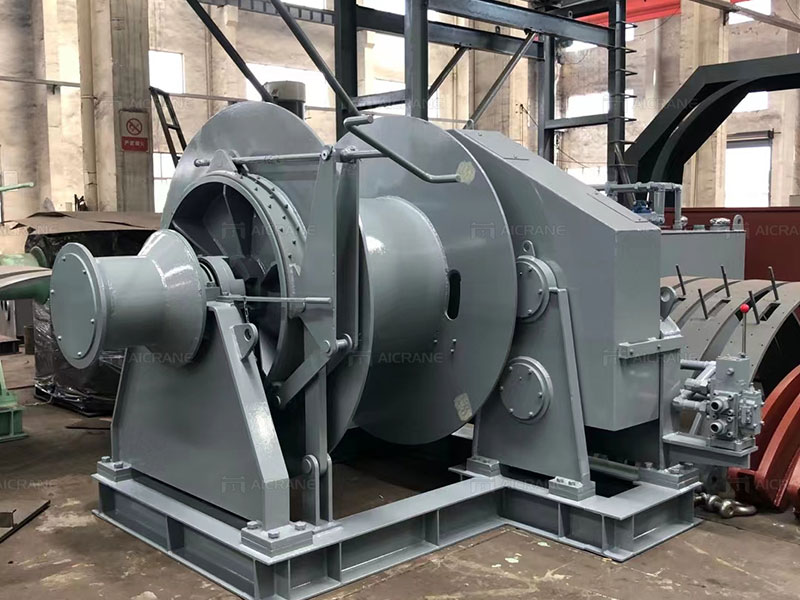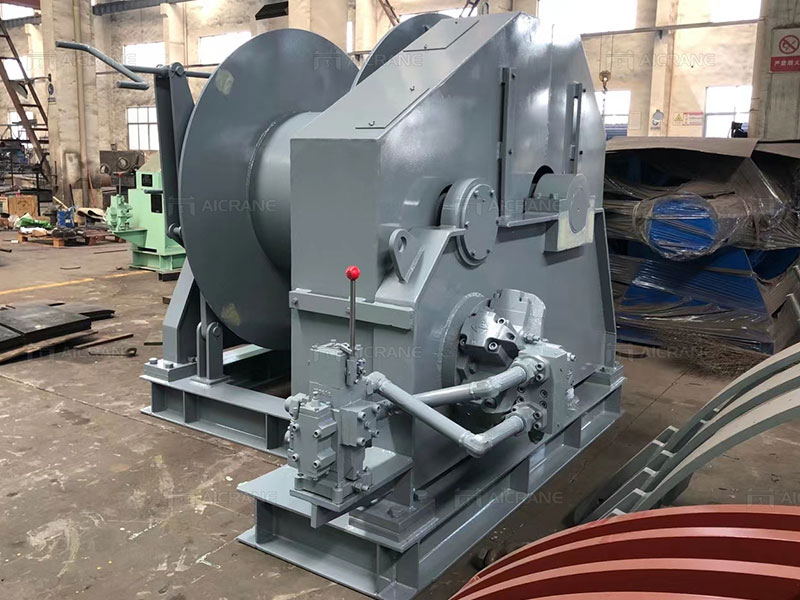Marine winches are essential equipment for various applications in the maritime industry, ranging from ship anchoring and mooring to lifting heavy loads. Selecting the right marine winch is crucial to ensure safe and efficient operations on board. With numerous options available in the market, it can be overwhelming to determine the most suitable winch for your specific needs. In this article, we present a comprehensive marine winch selection guide that focuses on six key aspects to consider.

Load Capacity and Line Pull:
The first and foremost consideration when selecting a marine winch is its load capacity. Determining the maximum load you will be working with is essential to choose a winch that can handle the weight. It’s crucial to consider both the static and dynamic loads, as the latter can be significantly higher during operations such as anchor retrieval or heavy lifting. Ensure that the winch’s line pull is sufficient to handle the anticipated load, accounting for factors like friction, incline, and environmental conditions.
Power Source and Drive System:
Marine winches can be powered by various sources, including hydraulic, electric, or even manual systems. Each power source has its advantages and limitations. Electric winches are widely used due to their ease of use and reliability, while hydraulic winches offer superior power and control. Manual winches, although less common, can be useful in emergency situations or for smaller operations. Consider the availability of power sources on your vessel and select a winch that aligns with your requirements.

Drum Configuration and Line Speed:
The drum configuration and line speed of a marine towing winch are critical factors to assess. The drum’s size and shape should be compatible with the type and length of the line you intend to use. Additionally, the line speed determines the efficiency of operations. A faster line speed can save time and increase productivity, but it may come at the cost of reduced pulling power. Strike a balance between line speed and pulling capacity based on your specific needs.
Durability and Corrosion Resistance:
Operating in a marine environment exposes winches to harsh conditions such as saltwater, moisture, and abrasive elements. Therefore, selecting a winch with excellent durability and corrosion resistance is vital for longevity and reliable performance. Look for winches made from materials like stainless steel, which provide enhanced protection against rust and corrosion. Additionally, consider features such as sealed motors and IP (Ingress Protection) ratings to ensure adequate protection against water and debris.
Safety Features and Control Mechanisms:
Safety should always be a top priority when selecting a marine winch. Look for winches that incorporate safety features such as load limiters, emergency stops, and fail-safe mechanisms to prevent accidents and equipment damage. Additionally, consider the control mechanisms available, such as wireless remote controls or joystick operation, which can enhance operator safety and convenience during operations.
Installation and Maintenance:
Finally, consider the ease of installation and maintenance requirements of the marine winch. Some winches may require specialized tools or extensive modifications for installation, which can be time-consuming and costly. Opt for winches that are designed for easy installation, preferably with clear instructions and adequate support from the manufacturer. Additionally, ensure that maintenance tasks such as lubrication and inspection can be performed easily and regularly to keep the mooring winch in optimal condition.
In conclusion, selecting the right marine winch requires careful consideration of several aspects. Assessing load capacity, power source, drum configuration, durability, safety features, and ease of installation and maintenance will help you make an informed decision. Always consult with reputable suppliers or industry experts for guidance and ensure that the chosen winch meets the necessary standards and regulations. Investing time in selecting the appropriate marine winch will pay off in the long run, ensuring smooth and safe operations aboard your vessel.